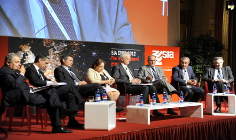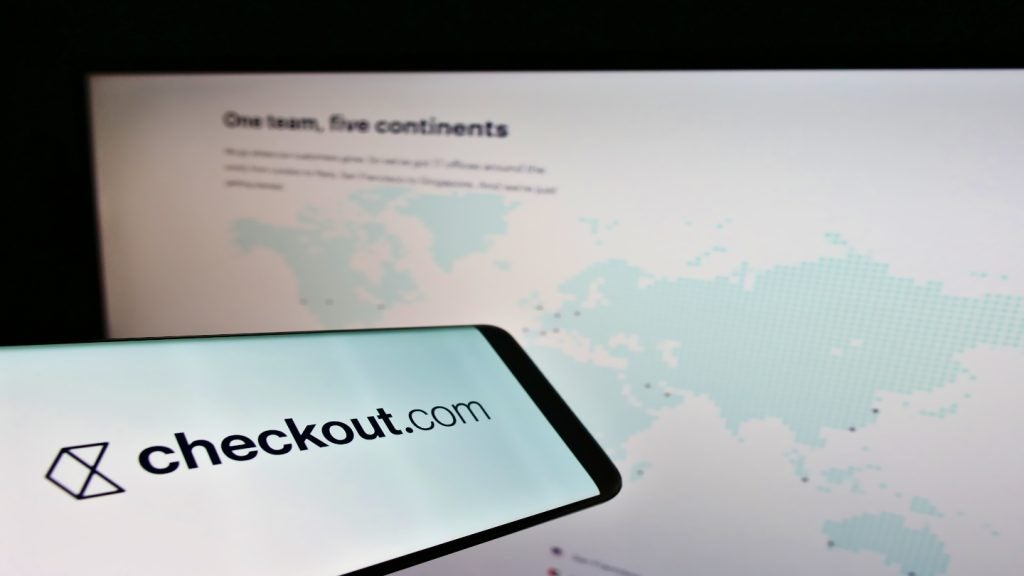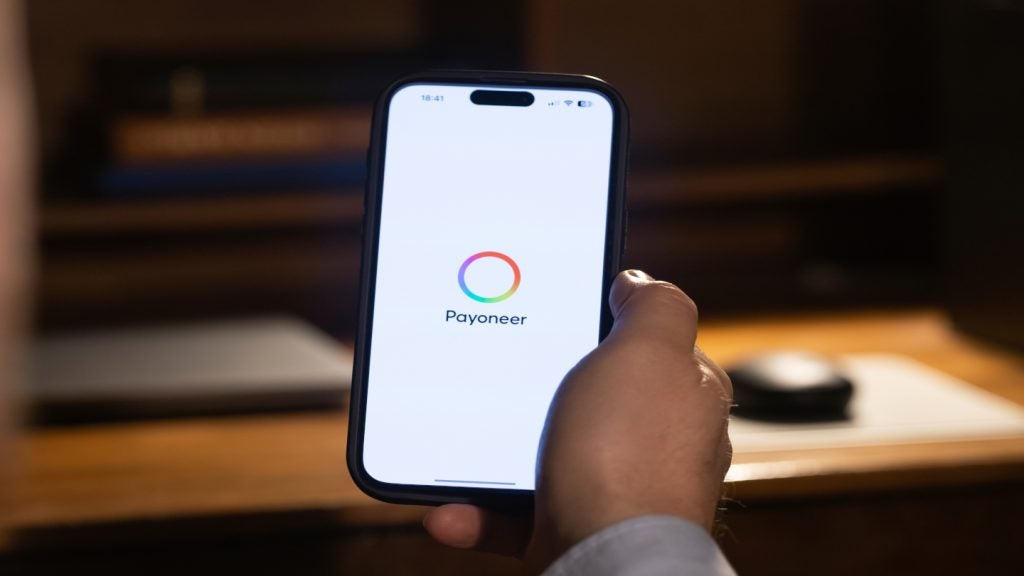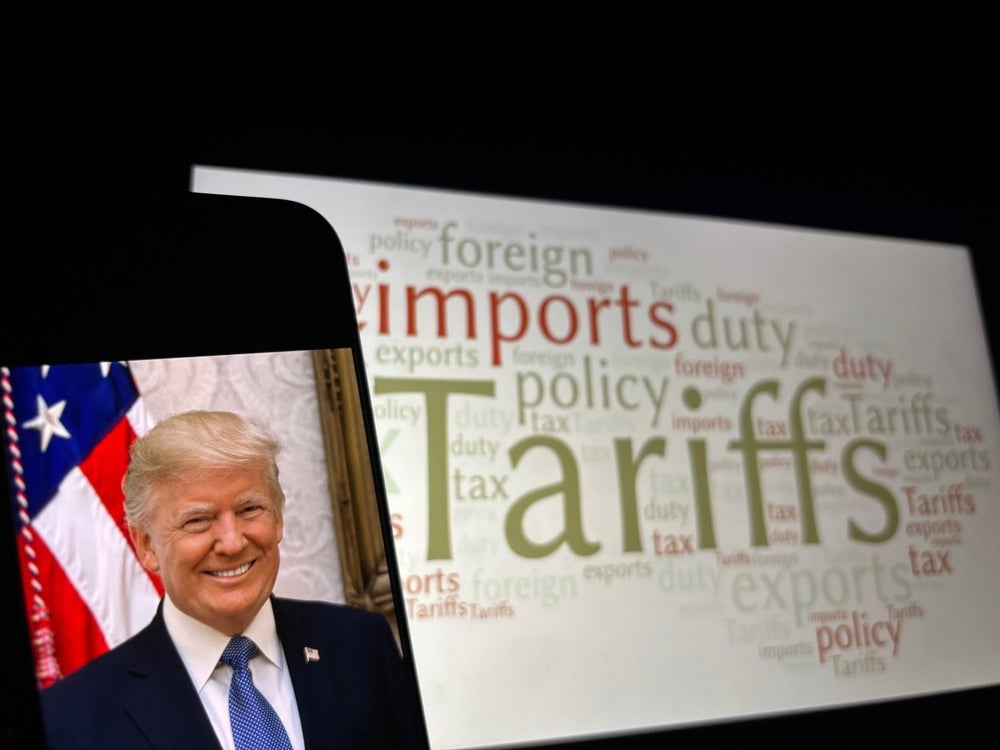Italy’s economic woes – or more specifically the activities being undertaken to put the economy on a sure footing – are stimulating innovation in electronic payments. Sara Perria looks at new consumer research studying the attitude to mobile payments
The Italian consumer is married to cash, and a divorce is not yet on the cards. However, interest in alternative payments like prepaid cards and increasingly mobile payments is growing quickly.
Industry stakeholders do not want to miss the opportunity to tap into one of the biggest European mobile phone markets and are looking closely at the Southern European country.
Research commissioned by payments’ processor SIA showed almost a fifth of Italians would be inclined to use their mobile as a payments tool. A similar percentage of citizens use exclusively cash in their daily life. While 80% of the population has a payment card, only six out of ten participants in the survey carried out by the highly-respected consumer research organisation Istituto per gli Studi sulla Pubblica Opinione (ISPO) said they typically use it.
"When we talk about payments, a three-speed Italy emerges- that of cash, that of cards and that of mobile payments," says SIA chief executive Massimo Arrighetti. "And this calls for a series of specific actions".
With young people calling for innovation and almost 92% of Italians possessing a mobile phone, Arrighetti says, "it is imperative to identify the actions necessary to promote the use of electronic payments and speed up the process already underway".
The current political context is also playing a role in shaping the Italian payments’ market, as the Monti technocrat government has made electronic payments mandatory for transactions over EUR1,000 (USD1,300), in a fight against tax evasion.
During a recent NFC and Mobile Money Conference in Milan, Telecom Italia chairman Franco Bernabè said he believes these measures will be a driving force in speeding up the wide-spread diffusion of mobile payments.
The next payment generation in numbers
The ISPO research offers a view of Italian citizens according to their preferred payment method. The use of cash is evenly spread, with a peak among over 64 years of age users, those with a lower level of education, housewives, pensioners and the unemployed.
The majority of card users are males, people between 25 and 54 years old, with a high degree of education. Entrepreneurs, managers and teachers represent the professional bulk of users.
Almost 60% of respondents said they would use cards more often if these were accepted by all merchants or if more shops had point of sale infrastructure.
When focusing on mobile payments, the picture changes. A fifth of interviewees said they would be inclined to use mobile payments. Four out of ten of those interested in the new technology is between 18 and 24 years old.
Seven out of ten of those set to use their mobile to purchase goods is under 35. The higher the education-level is, the higher is the interest.
The first adjective associated with cash is ‘simple’, while cards are considered ‘convenient’. The main reason fostering an interest in mobile payments, instead, is speed, followed by convenience and ease of use.
The adjective least associated with mobile payments is, significantly, ‘safe’.
Almost half of those who declared not to be interested in m-payments, gave as their main reason the need to receive more information on the topic.
Pushing electronic payments
Italy is a leading market when it comes to prepaid products, but the usage of cards is below the European average.
According to the ECB Payment Statistics 2012, Italy’s GDP per capita is above EU average. The value of transaction per card per inhabitant, though, is EUR2,200, against EU EUR3,900 per year.
The number of cards per inhabitant is 1.3 against an EU 1.9 average. The contrast is striking when it comes to the number of transaction per inhabitant: 28.3, with a 6% increase in 2011 in Italy, versus a European 76.5 and a 9% increase.
When linked to a broader view of the Italian context, it becomes clear why the issue of electronic payments is under the government’s spotlight.
These figures go hand in hand with a wide-spread black economy, which the government estimates equal to a quarter of the country’s GDP.
To crack down on tax evasion the government is focusing on expanding the reach of electronic payments. These are now mandatory for transactions over EUR1,000 (USD1,300). Also, through this years’ ‘Decreto Sviluppo’ ( a government’s decree) all professionals will have to offer the facility to accept electronic payments by 2014.
Banca d’Italia (Italian central bank) managing director for central banking, markets and payment systems Emerico Antonio Zautzick tells Electronic Payments International: "All indicators lead to think electronic payments make the system more efficient. There is a traceability and transparency issue and if there is a submerged part of the economy, electronic transaction can help it to emerge".
The issue of tax evasion is not the only barrier to a further development of electronic payments: "I am not so convinced Italians are particularly attached to cash. It is uncertainty on whether they will be able to pay electronically or not that promotes the usage of cash: if I go to the doctor and I don’t know whether he will actually accept cards, then I’ll bring cash. And, at that point, I will pay with cash because I do not want to go around with all that money," says the Banca d’Italia managing director.
"But I expect to see a great improvement following the implementation off all laws, including SEPA," he concludes.
SIA chief executive Massimo Arrighetti agrees on the need to accelerate the process, adding this should be done through incentives: "I do not believe in making electronic payments compulsory. Merchants should be invited to accept cards, through incentives and incentives should be granted to consumers as well."
Arrighetti offers an example of how incentives could work: "If all operations processed via POS could be seen by the tax authorities via an automated procedure, this would mean the merchant would not have to do anything because it would be managed automatically. This would represent an incentive in itself".
According to Arrighetti it’s the merchant who plays the greater role in fostering electronic payments.
SIA has estimated only 60% of shops in Italy have a POS in their premises.
"There is an issue related with the possibility and chance of usage: the ISPO research shows that the single reason given by consumers on why they do not use the card more often is because merchants do not accept it or if they do it’s only to accept a significant transaction".
Agenzia delle Entrate, the Italian tax office, head of Information and communication technology Anna Pia Sassano moves the debate to another core problem, as she believes that the main incentive revolves around interchange fees: "They have to be lowered: this is the only way to promote electronic transactions. Currently, they are just too high," she says.
From e-payments to m-payments: what’s the link?
SIA chairman Carlo Tresoldi states it clearly: "Electronic payments and mobile payments are absolutely linked".
The processor has developed a service that makes it possible to link any payment card – debit, credit or prepaid, whatever the issuer – to any NFC-enabled phone, whatever the operator.
Mobile operators such as Vodafone and Tre have decided to implement the capability, partnering with banks and schemes.
Vodafone has partnered with acquirer Cartasì and MasterCard to develop the Smart Pass NFC, which is being trialled in Milan this month ahead of a national lunch in 2013.
There are already 10,000 NFC-enabled POS devices in Italy, but Vodafone said the number will increase to 150,000 by the end of 2013.
Similar projects have been recently launched by Telecom Italia and Intesa Sanpaolo, through a platform called Move and Pay, which users can access downloading an app. The project includes a loyalty feature to promote the use of mobile payments.
Tresoldi says the reason why mobile payments are the future is the fact they are the perfect instrument to offer interoperability and freedom of choice: "The mobile phone is the tool that gives the higher number of links between pre-existing tools. The future of payments lies in this cocktail between cards, mobiles and web".
Arrighetti adds: "The relation between electronic payments and mobile payments is a generational one. It will take approximately 20 years to become an everyday technology. This is the time needed by any technology to gain acceptance, from the colour TV to the fridge".
Should the regulator intervene now then?
"I think regulators should not intervene at all: every time the regulator intervenes, it creates a distortion in the market," he says.








